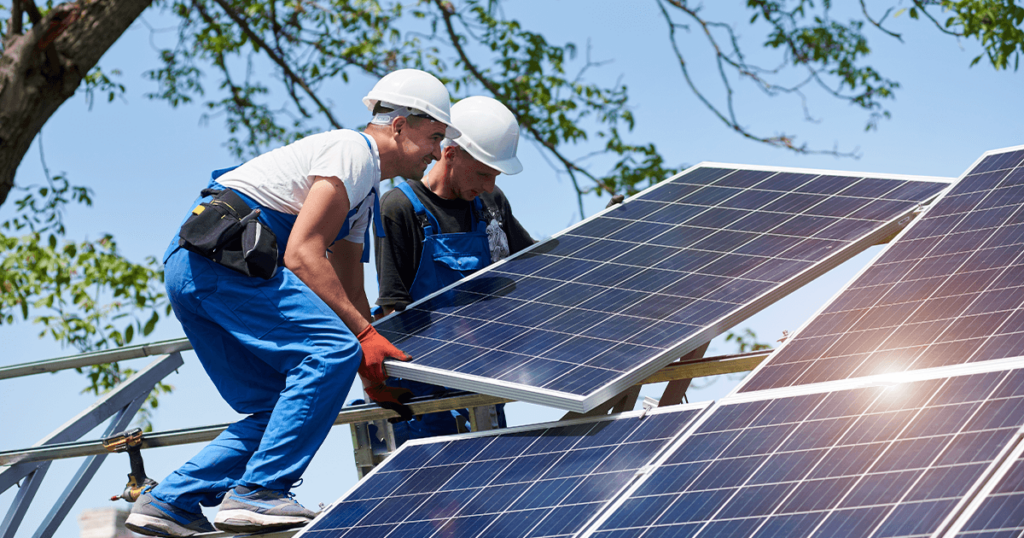In recent years, homeowners have increasingly opted to install solar panels. This trend is largely due to growing awareness of the environmental benefits of solar energy. Many homeowners are looking for ways to reduce their carbon footprint and make a positive impact on the environment as a result of carbon emissions. A clean, renewable energy source like solar energy can assist in achieving those goals.

Financial Benefits
But it’s not just about the environment. There are also financial benefits to installing solar panels. Homeowners who generate their own electricity through solar power can reduce their reliance on the grid and potentially lower their energy bills. In some cases, homeowners can even earn money by selling excess energy back to the grid. This can be a significant source of income and can help offset the initial investment of installing solar panels.
Government Incentives
Governments and utility companies in many regions offer financial incentives to homeowners who install solar panels, which can significantly reduce the upfront cost of installation. These incentives can take many forms, such as tax credits, rebates, and grants. The availability of these incentives has been a significant driver in the recent boom in residential solar installations.
Efficient and Affordable
Advances in technology have also made solar panels more efficient and affordable than ever before. Today’s solar panels are more durable, have longer lifespans, and can generate more power than previous generations. This means that homeowners can get more bang for their buck and enjoy a greater return on investment.
Solar Versatility
Another benefit of solar energy is its versatility. Solar panels can be installed in various locations, including rooftops, carports, and ground mounts. This flexibility makes it possible for homeowners to find the best location for their panels based on their specific needs and preferences.

Installation Process
But what about the installation process itself? Installing solar panels requires a professional electrician who has experience with solar installations. It’s important to choose a reputable and experienced installer to ensure that the installation is done correctly and safely. The installation process typically involves the following steps:
- Consultation: The installer will conduct an initial consultation to assess the homeowner’s needs and determine the best location for the panels.
- Design: The installer will design a custom solar panel system based on the homeowner’s needs and preferences.
- Permitting: The installer will obtain any necessary permits from the local authorities.
- Installation: The installer will install the solar panels and connect them to the home’s electrical system.
- Inspection: The installation will be inspected to ensure that it meets all local codes and standards.
- Activation: The solar panel system will be activated, and the homeowner will start generating their own electricity.
Overall, there are many benefits to exploring solar energy for residential use. The benefits of solar energy are numerous, whether you want to reduce your carbon footprint, lower your utility bills, or earn money by selling excess energy back to the grid. Seeing more and more homeowners taking advantage of this clean, renewable energy source is a testament to its growing popularity.
Photo credits: shutterstock.com



